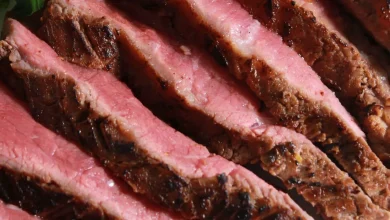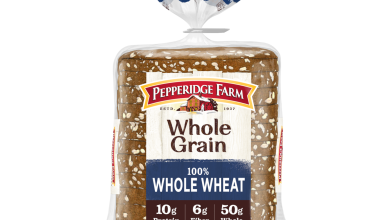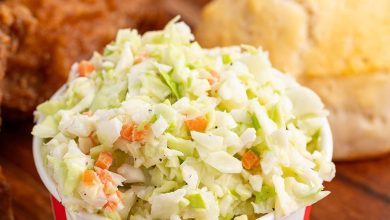Bear Meat Nutrition: A Lean, Protein-Packed Game Meat for Healthy Eating
Bear Meat (Raw) – Nutritional Information
Bear meat is an exotic and flavorful game meat that is known for its rich taste and nutritional benefits. As a source of high-quality protein, it can be a satisfying and hearty addition to any meal, particularly for those seeking lean, low-carb options.
Nutritional Breakdown (per 100g serving):
| Nutrient | Amount |
|---|---|
| Energy | 161 kcal |
| Protein | 20.1 g |
| Fat | 8.3 g |
| Saturated Fat | 0.0 g |
| Carbohydrates | 0.0 g |
| Fiber | 0.0 g |
| Sugar | 0.0 g |
| Calcium | 3.0 mg |
| Iron | 6.65 mg |
| Magnesium | 0.0 mg |
| Phosphorus | 151.0 mg |
| Potassium | 0.0 mg |
| Sodium | 0.0 mg |
| Zinc | 0.0 mg |
| Copper | 0.0 mcg |
| Manganese | 0.0 mg |
| Selenium | 8.3 mcg |
| Vitamin C | 0.0 mg |
| Thiamin (Vitamin B1) | 0.16 mg |
| Riboflavin (Vitamin B2) | 0.68 mg |
| Niacin (Vitamin B3) | 3.2 mg |
| Vitamin B6 | 0.0 mg |
| Folate | 0.0 mcg |
| Vitamin B12 | 0.0 mcg |
| Vitamin A | 0.0 mcg |
| Vitamin E | 0.0 mg |
| Vitamin D2 | 0.0 mcg |
Key Health Benefits of Bear Meat:
-
High in Protein: At 20.1 grams of protein per 100 grams, bear meat is an excellent source of lean protein, making it a great option for building muscle and repairing tissue.
Related Articles -
Rich in Iron: The iron content in bear meat (6.65 mg per 100g) supports healthy blood production and helps in preventing iron-deficiency anemia.
-
Low in Saturated Fats: Bear meat contains minimal saturated fats, which makes it a good choice for those seeking a heart-healthy protein option.
-
Essential Minerals: Bear meat provides important minerals like phosphorus (151 mg), which supports bone health, and selenium (8.3 mcg), which acts as an antioxidant and supports the immune system.
-
No Carbohydrates or Sugar: Bear meat contains zero carbohydrates and sugar, making it an ideal choice for low-carb and ketogenic diets.
-
Vitamin B Boost: With a good amount of niacin (3.2 mg) and riboflavin (0.68 mg), bear meat helps in maintaining healthy skin, nerves, and metabolism.
Allergen Information:
Bear meat is a game meat and does not typically contain common allergens such as gluten, dairy, or soy. However, as with any game meat, it’s important to ensure proper sourcing and handling to avoid cross-contamination with other allergens.
Dietary Preferences:
- Paleo Diet: Bear meat fits perfectly into the paleo diet, being a natural, unprocessed protein source.
- Keto-Friendly: With virtually no carbs, bear meat is an excellent choice for those following a ketogenic diet.
- Gluten-Free: Naturally gluten-free, bear meat is suitable for individuals with gluten intolerance or celiac disease.
- Low-Carb: The absence of carbohydrates makes bear meat an ideal choice for low-carb or diabetic diets.
Cooking Tips:
Bear meat can be tough, so slow-cooking methods such as braising or stewing are recommended to make it more tender. When cooking bear meat, always ensure it is thoroughly cooked to avoid the risk of foodborne illness, as it can sometimes carry parasites.
Conclusion:
Bear meat offers a nutrient-packed, protein-rich alternative to more common meats like beef or chicken. Its lean composition and rich mineral content make it a great choice for those seeking to diversify their diet with game meats. As a rare, exotic meat, bear meat provides a unique flavor profile and can be enjoyed by those looking for new culinary experiences.








